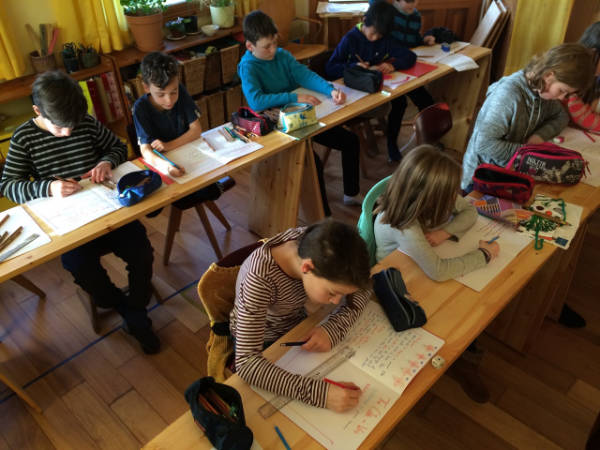“It is the supreme art of the teacher to awaken joy in creative expression and knowledge”
Albert Einstein
Since its inception one hundred years ago, the Steiner Waldorf approach to education has been to match the educational content being taught to the individual student’s stage of development. This age-appropriate methodology enables each student to fulfill their own potential, and develop at their own pace and in their own way.
Educating the whole person
Steiner education seeks to educate the physical, emotional, intellectual, cultural and spiritual aspects of each young person. The value of this multi-faceted approach has been borne out by the work of researchers such as Howard Gardner in his theory of “multiple intelligence”. It is achieved by a deep immersion in each subject and the use of a variety of learning tools such as art, drama, music and foreign languages to explore the material presented. Lessons include a balance of intellectual, artistic and practical content.
To meet the demands of today’s rapidly-changing and complex world, our young people need to be creative, resourceful, self-confident and able to think critically and independently. In addition to the traditional academic subjects taught in other schools, Steiner schools offer a broader curriculum that includes life skills such as cookery, gardening and crafts as well as nature-based learning, languages and music, all serving to educate rounded, resourceful, independent-minded people.
“Since we can’t know what knowledge will be most needed in the future, it is senseless to try to teach it in advance. Instead, we should try to turn out people who love learning so much and learn so well that they will be able to learn whatever needs to be learned.”
John Holt

